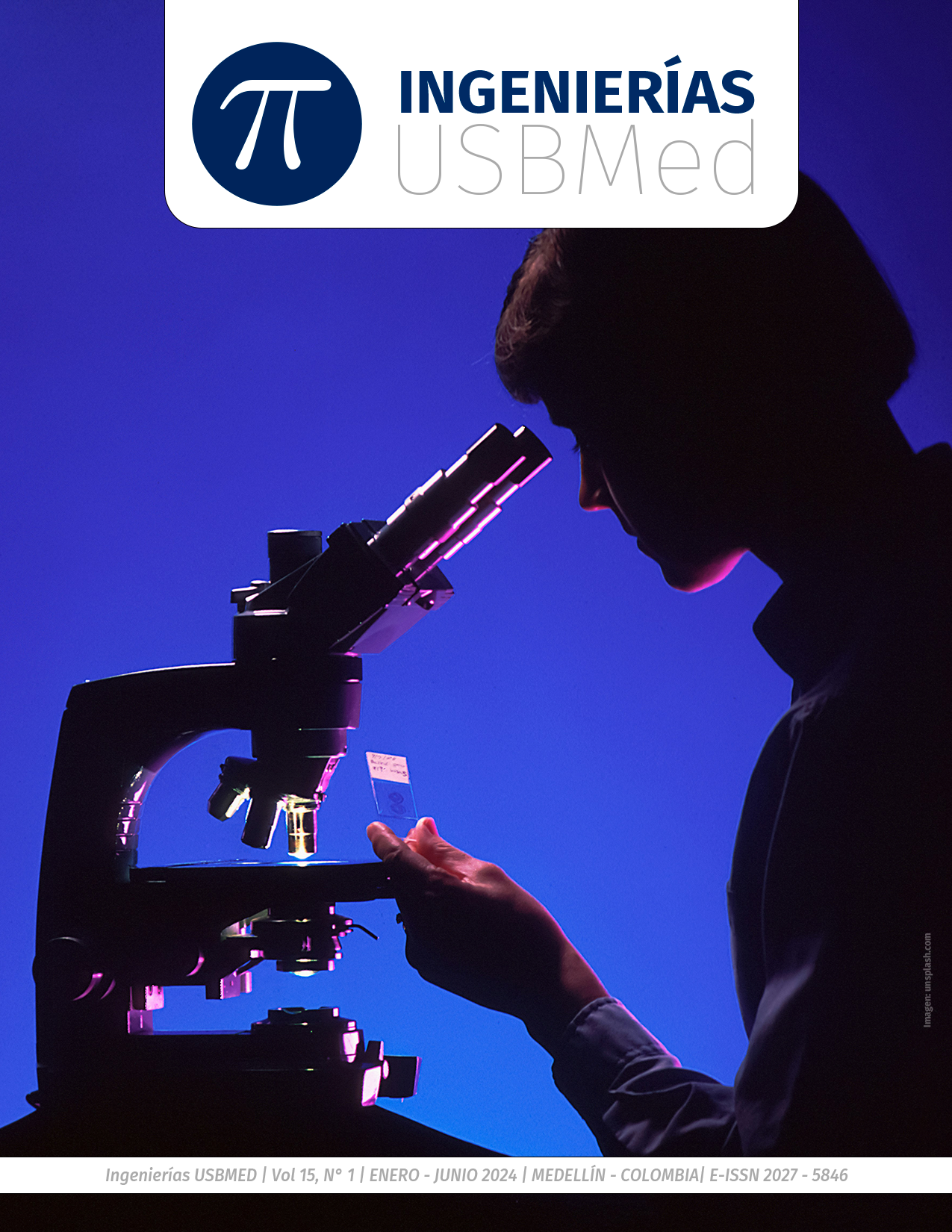This journal provides immediately free access to its contents under the principle that make available the research results for free to the public, helps for a greater global exchange of knowledge.
Therefore, the journal invokes the Creative Commons 4.0
License attributions: Recognition – Non-commertial - Share equal. Commercial use and distribution of original or derivative works are not permitted and must be done with a equal license as the one that regulate the original work.
Abstract
Open innovation Bootcamps foster a favorable environment for solving challenges identified in the territory. That is why the objective of this study was to analyze the benefits and impacts of the Bootcamp held at the University of Antioquia, Bajo Cauca section, on participants. An evaluation of the teams was carried out in three key competencies: creativity and innovation, teamwork and effective communication. The methodology consisted of developing a training route through experiential workshops, in which 46 students participated divided into 14 teams. Subsequently, the teams were evaluated by judges using a questionnaire that included quantitative and qualitative sections. This allowed us to assess the competencies developed by the Bootcamp participants. The results indicated that teamwork was the most developed competency by students; in addition, competencies were correlated quantitatively and qualitatively for greater reliability. The conclusions allow us to identify that understanding the challenge and generating effective solutions are closely related and crucial for increasing the rating by judges. This connection drives development by comprehensively addressing regional needs and challenges.
Keywords:
References
[2] M. K. Sharma y R. C. Sharma, “Innovation Framework for Excellence in Higher Education Institutions”, Global Journal of Flexible Systems Management, vol. 22, pp. 141–155, 2021.
[3] N. Agarwal, “A study of innovations in instructional strategies and designs for quality enrichment in Higher Education”, Cosmos: An International Journal of Art & Higher Education, vol. 7, núm. 2, pp. 1–12, 2018.
[4] Universidad de Antioquia, “Quienes Somos”. [En línea]. Disponible en: https://www.udea.edu.co/wps/portal/udea/web/inicio/extension/innovacion. [Consultado: 05-mayo-2023].
[5] Universidad de Antioquia, “Resolución Rectoral 49977”, 18 de abril de 2023.
[6] Universidad de Antioquia, “Ecosistema regional de CTi+E”, Innovación en la UdeA. [En línea]. Disponible en: https://www.udea.edu.co/wps/portal/udea/web/inicio/extension/innovacion. [Consultado: 14-mayo-2023].
[7] J. D. Vélez Villegas, “Propuesta de campamento emprendedor Universidad Empresa Estado y las comunidades de las subregiones de Antioquia a través de una estrategia de innovación abierta para la División de Innovación”, Universidad de Antioquia, Facultad de Ciencias Económicas, 2021.
[8] H. Chesbrough, W. Vanhaverbeke, y J. West, Open innovation: Researching a new paradigm. Oxford University Press on Demand, 2006.
[9] C. M. Lopes, A. Scavarda, L. F. Hofmeister, A. M. T. Thomé, y G. L. R. Vaccaro, “An analysis of the interplay between organizational sustainability, knowledge management, and open innovation”, Journal of cleaner production, vol. 142, pp. 476–488, 2017.
[10] T. Bager, “The camp model for entrepreneurship teaching”, International entrepreneurship and management journal, vol. 7, pp. 279–296, 2011.
[11] A. Ghouila et al., “Hackathons as a means of accelerating scientific discoveries and knowledge transfer”, Genome research, vol. 28, núm. 5, pp. 759–765, 2018.
[12] S. Y. Perng, R. Kitchin, y D. M. Donncha, “Hackathons, entrepreneurial life and the making of smart cities”, Geoforum, vol. 97, pp. 189–197, 2018.
[13] A. Ramírez Portilla, “Evaluando la creación de valor e impacto social: El caso del Bootcamp de Innovación de la Ibero”, Participación, ciudadanía y filantropía: debates teóricos y experiencias en el contexto actual, pp. 51–67, 2018.
[14] S. H. Tih, W. M. H. Hussain, y N. M. H. Hashim, “Innovation and entrepreneurship bootcamp: a descriptive study assessing the effectiveness of entrepreneurship education”, International Journal of Business and Globalisation, vol. 22, núm. 2, pp. 240–257, 2019.
[15] Universidad de Antioquia, “Bootcamp de innovación abierta para Bajo Cauca y Norte”. [En línea]. Disponible en: https://www.udea.edu.co/wps/portal/udea/web/inicio/extension/innovacion. [Consultado: 15-mayo-2023].
[16] Á. Fidalgo-Blanco M. Sein-Echaluce & F. García-Peñalvo, “Aprendizaje Basado en Retos en una asignatura académica universitaria”, Revista Iberoamericana de Informática Educativa, vol. 25, p. 8, 2019.
[17] A. Bustos Jiménez, V. Castellano Hinojosa, J. Calvo Ramos, R. Mesa Sánchez, V. J. Quevedo Blasco, y C. Aguilar Mendoza, “El aprendizaje basado en retos como propuesta para el desarrollo de las competencias clave”, PYM, n.º 380, pp. 50-55, dic. 2019.
[18] R. Cardona Cano, E. M. Gonzalez, y A. Jaramillo Bustos, “Ruta de aprendizaje para el desarrollo de la creatividad, el emprendimiento y la innovación en la educación superior”, Competencias, vol. 47, pp. 58–69, 2021.
[19] I. Hernández Arteaga, J. C. Alvarado Pérez, y S. M. Luna, “Creatividad e innovación: competencias genéricas o transversales en la formación profesional”, Rev. virtual univ. catol. norte, vol. 1, n.º 44, pp. 135–151, feb. 2015.
[20] M. Fernández Balmón, “Comunicación efectiva y trabajo en equipo”. Ediciones Paraninfo, S. A., 2022.
[21] A. Flores Coral, G. M. Salazar Leyton, y G. J. Villanueva Plasencia, “Propuesta metodológica de capacitación para desarrollar la competencia 27:‘gestiona proyectos de emprendimiento económico o social’, del currículo nacional, en alumnos del quinto de secundaria del IEP ‘mundo mejor’, de la ciudad de Chimbote”, Universidad del Pacífico, Escuela de Postgrado, 2022.
[22] J. López-Sánchez, N. Suárez Landazábal, y A. Valencia-Arias, “Tendencias en estudios sobre el uso y adopción de tecnologías de información y comunicación en instituciones de educación superior: un análisis bibliométrico”, Rev. virtual univ. catol. norte, vol. 67, pp. 136–162, 2022.
[23] F. C. Muñoz-La Rivera, P. Hermosilla, J. Delgadillo, y D. Echeverría, “T Propuesta de construcción de competencias de innovación en la formación de ingenieros en el contexto de la industria 4.0 y los objetivos de desarrollo sostenible (ODS)”, Formación universitaria, vol. 14, núm. 2, pp. 75–84, 2021.















